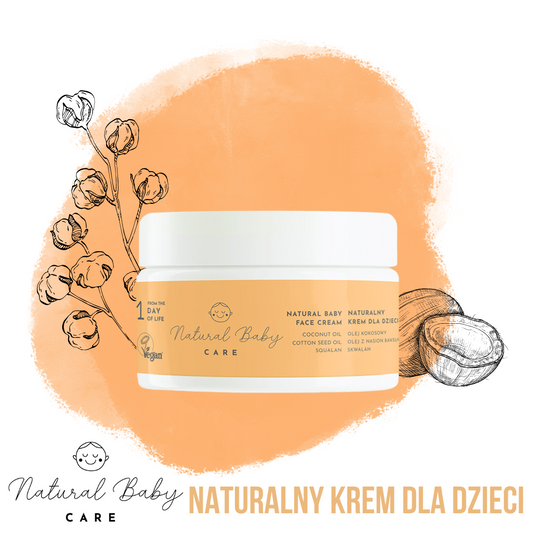Home > Knowledge Zone > Blog > Ways to treat a cold in a child

Ways to treat a cold in a child
Author : Natural Baby Care Team
Publication date: October 13, 2023
Reading time: 5 minutes
Colds in children are a topic that frequently arises in the lives of every family. This illness, although rarely serious, can cause anxiety and unpleasant symptoms in children. Therefore, it's important to understand the principles of treatment and, above all, preventative measures that can help our little ones stay healthy. In this article, we'll delve into the medical world of colds in children to find answers to questions that many parents have.
Check out cosmetics for your baby's delicate skin
Treating a child's cold is all about relieving symptoms. Here are some steps to help: • Provide adequate humidity: Humidifying the air in the room where your sick child is staying can help relieve symptoms. Use a humidifier or place a bowl of water near a heat source. • Rest and sleep: Give your child adequate sleep and rest. This is when the body repairs itself and fights infection. • Painkillers and antipyretics: These medications can help relieve fever and pain. However, be sure to adjust the dose based on your child's age and weight and consult your doctor.
Did you know that...?
Collapsible content
Przeziębienie u dzieci – jakie leki podawać?
Ile trwa przeziębienie u dziecka
Przeziębienie u dziecka – kiedy iść do lekarza?
Jak leczyć przeziębienie u dziecka?
Domowe sposoby na przeziębienie u dziecka
Kiedy zaczyna się przeziębienie u dziecka?
Jak zatrzymać przeziębienie u dziecka?
Przeziębienie u dzieci
Dlaczego pojawia się kaszel u dziecka?
Co na przeziębienie u dzieci?
Szybki sposób na przeziębienie u dziecka?
Katar u dziecka z krwią?
Katar u dziecka z jednej dziurki?
Przeziębienie u dziecka bez gorączki?
Kaszel u dziecka bez innych objawów?
Katar u dziecka bez innych objawów?
Czym leczyć przeziębienie u dzieci?
Przeziębienie u dziecka - jak długo utrzymuje się gorączka?
Przeziębienie u niemowlaka a spacer?
Przeziębienie u przedszkolaka?
Przeziębienie u dziecka i ropiejące oczy?
Jak zwiększyć odporność u dziecka?
Co na odporność dla dzieci?











